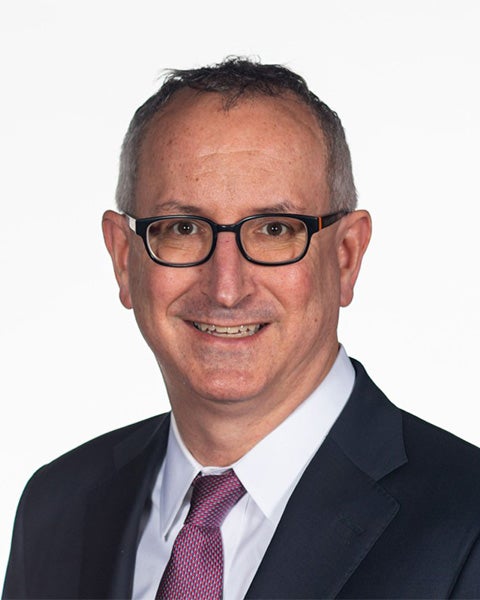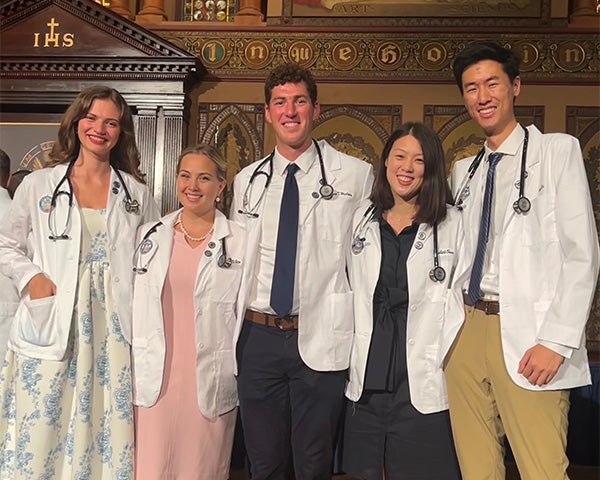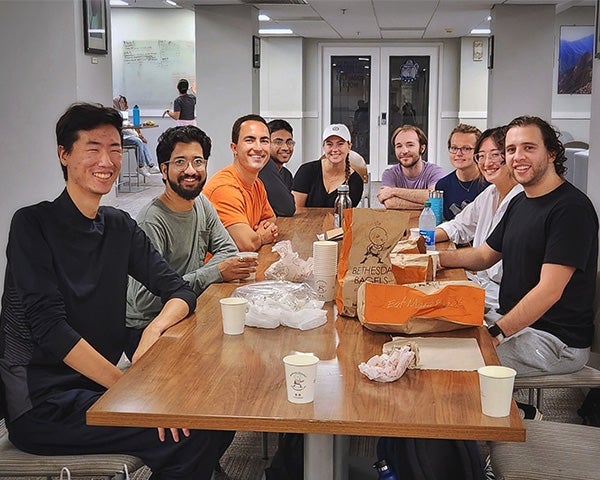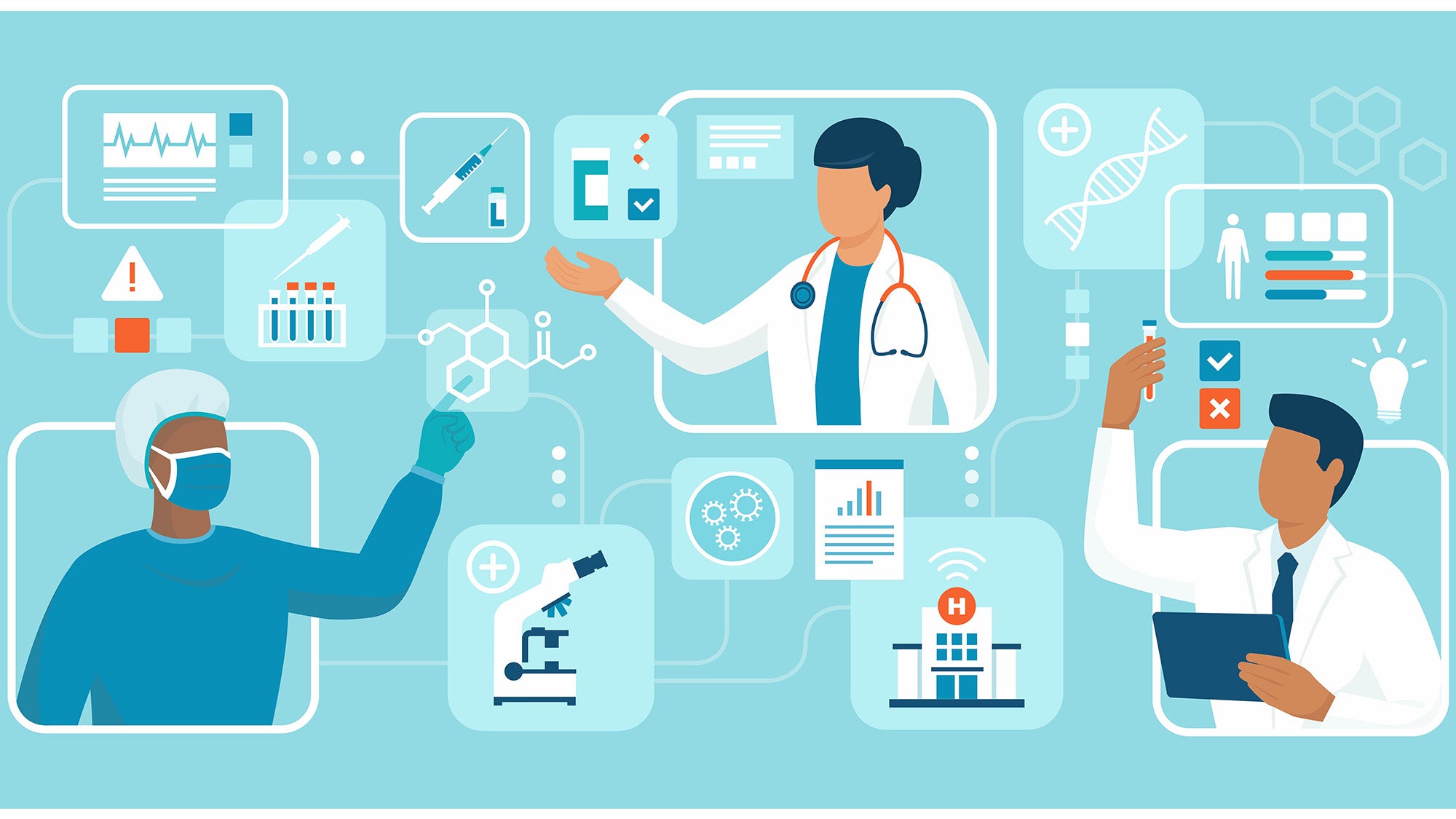Called To Be a Doctor-Doctor: MD/PhDs at Georgetown Move From Bench to Bedside and Back
(October 19, 2023) — Two things that Georgetown University Medical Center is known for are elite clinical training and groundbreaking scientific research. For most students, the decision is one or the other: to either enroll in the medical school to pursue an MD or engage in innovative research in a PhD-granting graduate program. However, a subset of Georgetown students have made the decision to pursue both through the MD/PhD program — allowing them to get the best of both worlds.
Beginning in 2022, the Georgetown MD/PhD program began providing newly selected incoming students full funding, meaning that the incoming students now receive a full tuition scholarship and stipend for their approximately eight years of MD/PhD training.

Todd Waldman, MD, PhD
Todd Waldman, MD, PhD, director of the MD/PhD program, says this recent change allows the Georgetown MD/PhD program to be maximally competitive in recruiting, since many other MD/PhD programs nationwide are fully funded. By doing so, this change also will make it possible for the program to more effectively recruit trainees from historically underrepresented groups.
“By fully funding our incoming students, we’re now well-positioned to compete for a prestigious Medical Sciences Training Program grant awarded by the National Institutes of Health,” says Waldman. “Receiving an MSTP grant would significantly enhance the prestige of the program and has significant implications for the life sciences at Georgetown.”
Of the 42 current MD/PhD trainees, 14 have been awarded F30 fellowship grants — a competitive grant from the National Institutes of Health awarded to trainees in year three or four of the program that funds them for the remainder of their PhD and medical training. “Our success at competing for these very competitive grants is a testament to just how impressive our trainees are,” Waldman says. “We are so fortunate to have these burgeoning medical scientists energizing our classrooms and laboratories.”
Cura Personalis
Waldman and students within the MD/PhD program point out other key elements that make the program attractive.
Georgetown’s motto, cura personalis, care of the whole person, attracts students who are on the frontlines of discovering different applications for personalized medicine. For those at the medical center, it means taking a translational view — from basic research to clinical care and the potential impact it will have on people’s standard of care.

Margaret Sten (M’22, G’30) (second from left) and fellow MD/PhD trainees celebrate the start of their medical training at the White Coat Ceremony.
“Care for the whole person includes making very substantial efforts to improve patient care through new discoveries and new observations in biomedical sciences,” Waldman says. “That’s where we come in.”
For Margaret Sten (M’22, G’30), cura personalis was one major reason she applied to the program.
“These are a very formative eight years of our training,” she says. “Therefore, it was important to me to attend an institution that not only has excellent traditional academic training for physician-scientists, but that also prioritizes comprehensive care, allocates time to teach the human side of medicine, and prioritizes teaching tools for patient advocacy.
“It feels like the school cares about patients as much as we do,” she says. “Georgetown has uniquely created so many routes for medical students to become advocates for patients, and this really shows that the university prioritizes those in need.”
Building a Community
For Nancy Luo (M’19, G’27), co-chair of the social activities committee for the MD/PhD program, building a community is critical to student success and well-being. The committee was recently created to ensure that students in the program have outlets to socialize and get to know each other.
“We have monthly free breakfasts,” explains Luo. “It gives us a chance to talk about things outside of science, as well as things related to our research.”

Outings provide MD/PhD students with chances to socialize.
In addition to the breakfasts, the committee schedules movie screenings, ice skating trips, and outings to see plays at the Davis Performing Arts Center on campus. Sten says these social activities prove invaluable.
“The other MD/PhD students are so supportive, genuine, and they seem to always want the best for you and to be happy to answer questions about various labs and administrative tasks. It feels like a small family at Georgetown and has been very valuable navigating the early transitions between medical school lectures and PhD rotations,” Sten says.
Collaborations between students and mentors are at the heart of the program. Dave Saxon (M’18, G’26) says faculty members also play an active role in creating community and facilitating effective networking and professional development.
“The closeness of the students in the program is reflected in the cooperativity of faculty to work together,” he says.
Dedication to Research
Georgetown’s MD/PhD program allows students to fully immerse themselves in their medical and research training, Saxon says. “The way the program is structured, you are able to fully engage with research, which has been really great for me,” he says.
Jacob Macro (M’21, G’29) is just starting his dissertation work, but his attraction to Georgetown is rooted in the opportunities for meaningful research at a National Cancer Institute-designated comprehensive cancer center. “I knew that I wanted to do oncology, so having Georgetown’s Lombardi Comprehensive Cancer Center here was huge,” he says. “If you want to do research on human samples, it’s fairly easy to do, since there’s a lot of faculty that collaborate with the cancer center.”
Waldman explains the program “gives you four years of time where you can totally and completely focus on science, which is a great way to get training in research.”
Mutual Respect
Waldman and the students say they feel a sense of respect between the students and faculty.
“MD/PhD programs such as this one are important to high-level academic medical centers because they inject a huge amount of extraordinary talent in the form of these amazing students,” Waldman says. “These super smart and energetic young people supercharge intellectual life at the medical center, which leads to important discoveries, which are not only important for our society, but bring grants and prestige to the institution.”
The students also say Waldman’s leadership has been one of the most positive attributes of the program. From anecdotes of him reaching out to students to make sure everything was OK to general statements of being “awesome,” it is clear the students also acknowledge the mutual respect between the director and the students within the program.
As a student approaching his clinical rotations, Saxon feels like the program has set him up for future success. “From what I’ve seen, students get matched at top residencies,” he says. While the program is rigorous, he says it’s worth it. “You’re going to struggle, and you’re going to learn.”
Learn more about the MD/PhD program.
Lara Stefansson
Lara Stefansson is a PhD student in neuroscience and a trainee in Georgetown’s Pharmacological Sciences Training Program.
